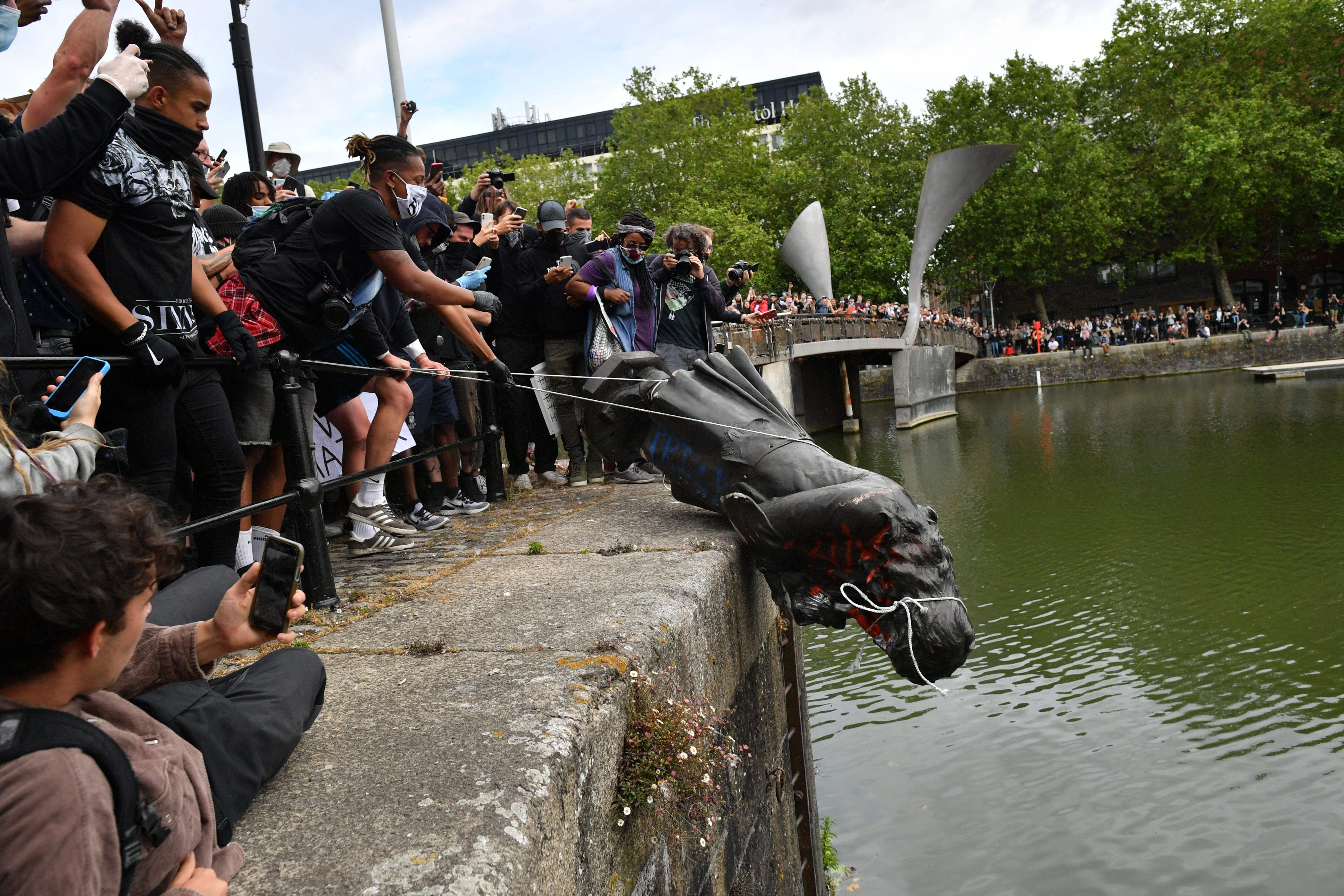Attorney General defends comments after Colston Four acquittal
Suella Braverman came under fire after saying she was considering whether to refer the case to the Court of Appeal.

Your support helps us to tell the story
From reproductive rights to climate change to Big Tech, The Independent is on the ground when the story is developing. Whether it's investigating the financials of Elon Musk's pro-Trump PAC or producing our latest documentary, 'The A Word', which shines a light on the American women fighting for reproductive rights, we know how important it is to parse out the facts from the messaging.
At such a critical moment in US history, we need reporters on the ground. Your donation allows us to keep sending journalists to speak to both sides of the story.
The Independent is trusted by Americans across the entire political spectrum. And unlike many other quality news outlets, we choose not to lock Americans out of our reporting and analysis with paywalls. We believe quality journalism should be available to everyone, paid for by those who can afford it.
Your support makes all the difference.The Attorney General has defended comments she made after four people were cleared of tearing down a statue of slave trader Edward Colston.
Suella Braverman came under fire after saying she was considering whether to refer the case to the Court of Appeal.
Rhian Graham, Milo Ponsford, Sage Willoughby, and Jake Skuse were prosecuted for pulling the statue down during a Black Lives Matter protest on June 7 2020 in Bristol, while a huge crowd was present. They were acquitted by a jury at the city’s Crown Court earlier this month.
The verdict prompted a debate about the criminal justice system after the defendants, dubbed the Colston Four, opted to stand trial in front of a jury and did not deny involvement in the incident. Instead they claimed the presence of the statue was a hate crime and it was therefore not an offence to remove it.
The acquittal cannot be overturned and the defendants cannot be retried without fresh evidence.
Ms Braverman said the verdict was causing “confusion” and she was “carefully considering” whether to use powers which allow her to seek a review so senior judges have the chance to “clarify the law for future cases”.
Speaking to MPs on Tuesday, she said her consideration on using the powers was “entirely within my remit”.
Answering questions from Labour member of the Commons Justice Committee Diane Abbott who suggested she only supported “jury findings when they come out in a way that you would like”, Ms Braverman said: “Not true. I disagree.
“I don’t think anything I’ve said has sought to undermine trial by jury. In fact, I make it very clear that it’s an important foundation of our legal system, and I very much respect the jury system. It’s a guardian of liberty.
“However, I do have a statutory power … where I can, if I seek to do so, refer a decision, a point of law which is arisen in a case, to the Court of Appeal to ask for their opinion on it and my mere consideration of this matter, I don’t think, suggests anything unduly political or improper.
“Considering this matter, which is what I expressed and which is what I’m doing, is entirely within my remit and indeed, my statutory power.”
When Ms Abbott said it seemed as if she were “seeking to echo the opinions” of Conservative colleagues rather than “defending trial by jury”, Ms Braverman added: “That’s not my intention.
“My intention is to legitimately identify points of law that merits further consideration by senior judges, as our system allows …
“But if I do conclude that there is a question of law that merits further inquiry by senior judges, I will refer it and I won’t hesitate to do so. Equally if I find on the law there isn’t such a question I won’t refer it.”
She said she was “not alone in identifying questions” about the case and that there were “lawyers on both sides of the debate who have said there is some kind of question here”, adding: “The Lord Chief Justice himself, in a judgment recently, highlighted the potential for questioning the area of law …”
Section 36 of the Criminal Justice Act 1972 allows the Attorney General, following a submission from the Crown Prosecution Service (CPS), to ask a higher court to clarify a point of law but it is not a means of changing the outcome of an individual case.
Since 2000 there have been 20 referrals under the powers, Ms Braverman told the committee.
The powers were most recently invoked in 2020 when she used them to establish it is not necessary in a sexual assault case for the prosecution to prove that the offender’s intent was sexual.